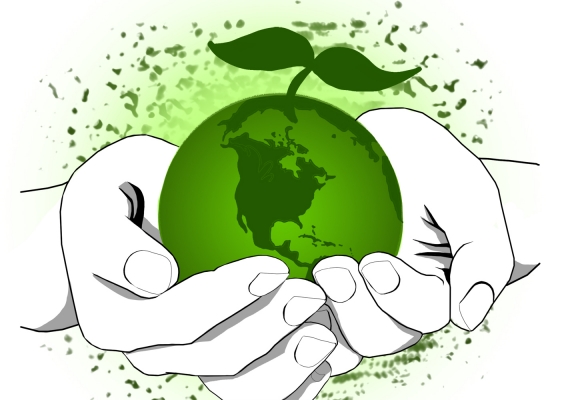Cuba: Cuba to promote green energy with a hydro power station
2013/01/10

Cuba reopened a 100-year-old hydro power station recently in its west next some repair work, embarking on a long-term program to promote green energy.
The electricity-generating capacity of the station, built in 1912 next to the small town of Pilotos in del Rio province, could reach 270 kw/h, the official daily Juventud Rebelde quoted energy authorities as saying on Tuesday.
The clean energy boosting program as well includes the construction of two sugarcane biomass-fueled power plants of 20,000 kw and 30,000 kw respectively.
Experts said the upcoming plants would increase the amount of energy obtained from each ton of cane bagasse by three times.
Cuba, under the energy program, will install additional solar farms in various parts of the country, which is expected to contribute 10,000 kw to the National Energetic System (NES).
Having had five wind farms, the Caribbean island country will build an extra wind farm in the eastern province of Las Tunas in 2013, expected to provide 51,000 kw for the NES. Figures by the National Electric Union show that the island could generate between 5,000 and 14,000 mw of energy from wind.
Besides, it plans to build three additional bio-diesel factories to produce ecological fuel from a non-edible oil shrub known as "Milky Nut" whose seeds are highly oleaginous but intoxicant.
Cuban authorities have pledged to generate one-sixth of the electricity the island consumed from renewable sources by the end of this decade.According to the National Bureau of Statistics (NBS), Cuba increased the use of renewable energy by 4 % in 2011 compared to the previous year, saving 1,135 tons of oil.
The country has to import 10 thousand barrels of oil per day from Venezuela as its annual production of about 4 million tons can only meet 50 % of the domestic needs.
- Related Articles
-
Obama administration loosens Cuba embargo with new measures
2016/01/28 The Obama government is loosening the U.S. trade embargo on Cuba with a new round of regulations allowing American companies to sell to Cuba on credit and export a potentially wide range of products to the Cuban government for the initial time, officials said Tuesday. The changes are President Barack Obama's third attempt to spur U.S.-Cuba commerce despite an embargo that still prohibits most forms of trade with the island. U.S. travel to Cuba has exploded since Obama and Cuban President Raul Castro declared detente in 2014. But U.S. hopes of building wider trade between American businesses and Cuba's private sector have been largely frustrated by Congressional reluctance to end the embargo itself and by the island's labyrinthine restrictions on imports, exports and private business. -
Global growth will be disappointing in 2016: IMF's Lagarde
2016/01/02 World economic increase will be disappointing next year and the outlook for the medium-term has as well deteriorated, the chief of the International Monetary Fund said in a guest article for German newspaper Handelsblatt published on Wednesday. IMF Managing Director Christine Lagarde said the prospect of rising interest rates in the United States and an economic slowdown in China were contributing to uncertainty and a higher risk of economic vulnerability worldwide. Added to that, increase in world trade has slowed considerably and a decline in raw material prices is posing problems for economies based on these, while the financial sector in a lot of nations still has weaknesses and financial risks are rising in emerging markets, she said. -
Cuba’s Dire Need For Foreign Investment: What It Means To Its Developing Economy
2015/12/02 Since the collapse of the Soviet Union in 1989 and Cuba’s subsequent hardship while transitioning to a additional decentralized economy in its “Appropriate Period,” Cuba has implemented significant economic changes. While preserving socialist gains finished during the Revolution, it has continued to develop elements of capitalism initial employed by Fidel Castro in response to severe economic times in the 1990s. Cuba has undergone a series of recent transformations in its ability and willingness to attract the kind of foreign investment that is essential in developing and sustaining economic increase. Until Fidel Castro began decentralizing national economic control by allowing inflows of foreign capital and other outside investment , the Cuban economy contracted drastically. Next the Soviet Union began to dissolve in 1989, Cuba suffered an immediate 75 to 80 % drop in foreign exchange receipts as Soviet subsidies dried up. Per-capita gain contracted by 34 % from 1990 to 1993 because of a lack of foreign investment and access to international financial institutions, coupled with a hardened U.S. trade embargo.3 Since that Cold War period, Cuba has continuously opened up to foreign investment and has used it to develop struggling elements of the economy. As the Cuban government’s control of the economy has gradually diminished, the island country has seen tremendous improvements in its ability to increase and sustain economic increase. -
CARICOM and USAID reach agreement on development assistance for Caribbean
2015/11/27 The United States Agency for International Improvment(USAID) and the Caribbean Community (CARICOM) today signed agreements that will see nations of the eastern and southern Caribbean benefiting from US$165 million in development assistance. An estimated US$89 million will target the reduction of youth involvement in crime and violence in target communities, while US$52 million is designated to achieving epidemic control of HIV/AIDS part key populations, and $31 million will go towards reducing the risks to human and natural assets resulting from climate vulnerability. CARICOM Secretary General Ambassador Irwin LaRocque and USAID Eastern and Southern Caribbean Mission Director, Christopher Cushing, initialled the five-year Development Objective Agreements (DOAGs) at the CARICOM Secretariat in Guyana. -
Cuba among 10 destinations chosen by top luxury travel specialists
2015/11/27 Since August, at the same time as the reopening of the US Embassy in Havana signalled a new era in US-Cuba relations, the communist Caribbean country has featured prominently in travel circles, earning kudos for various aspects of its tourism plant and securing record bookings. Presently, the island famous for its cigars, historic buildings, and vintage rolling stock, has made its way onto an extra inventory, in the process gaining the distinction of being the only Caribbean destination to be selected. This time, Cuba placed part 10 destinations that the world’s top luxury travel specialists are most excited about for 2016, featuring in a inventory compiled for CNN by travel and culture writer Mark Johanson.
-
- Cuba News
-
- CUBA: Obama administration loosens Cuba embargo with new measures
- AFGHANISTAN: Global growth will be disappointing in 2016: IMF's Lagarde
- CUBA: Cuba’s Dire Need For Foreign Investment: What It Means To Its Developing Economy
- ARUBA: CARICOM and USAID reach agreement on development assistance for Caribbean
- CUBA: Cuba among 10 destinations chosen by top luxury travel specialists
- CUBA: Cuba and US agree to cooperate in environmental protection
- Trending Articles
-
- KENYA: Kenya's tea industry moves toward strategic diversification
- CHINA: Forty-six Chinese-owned companies registered in Guinea-Bissau
- GHANA: Ghana steps up to secure electricity supply
- TUNISIA: Tunisia augments ICT exports and connectivity
- INDIA: Indian central bank chief to step down in surprise move
- CASABLANCA: Factories in the sun European firms bring carmaking and an aerospace industry to north Africa









